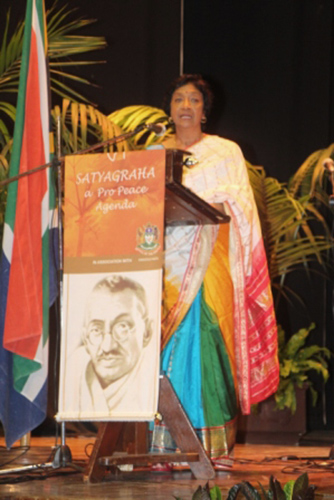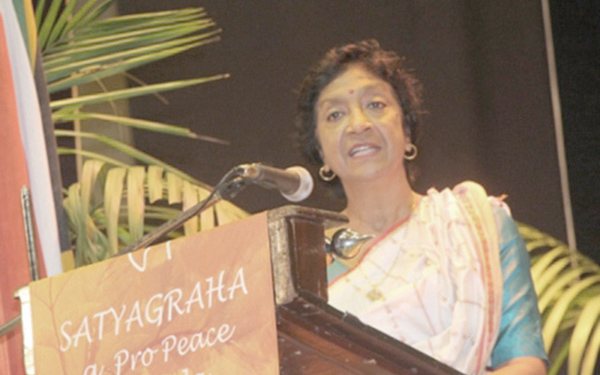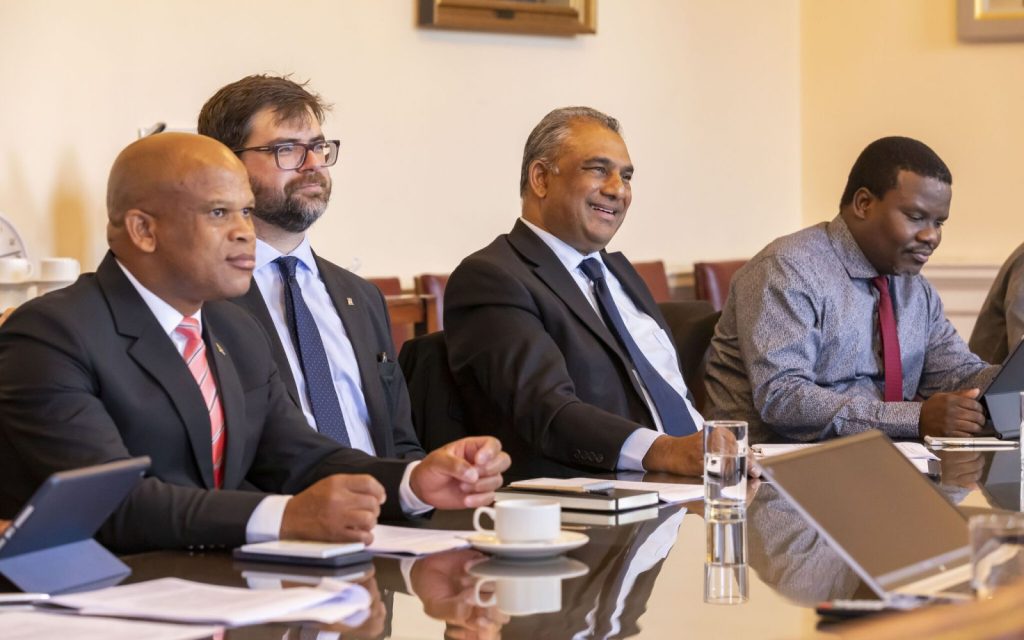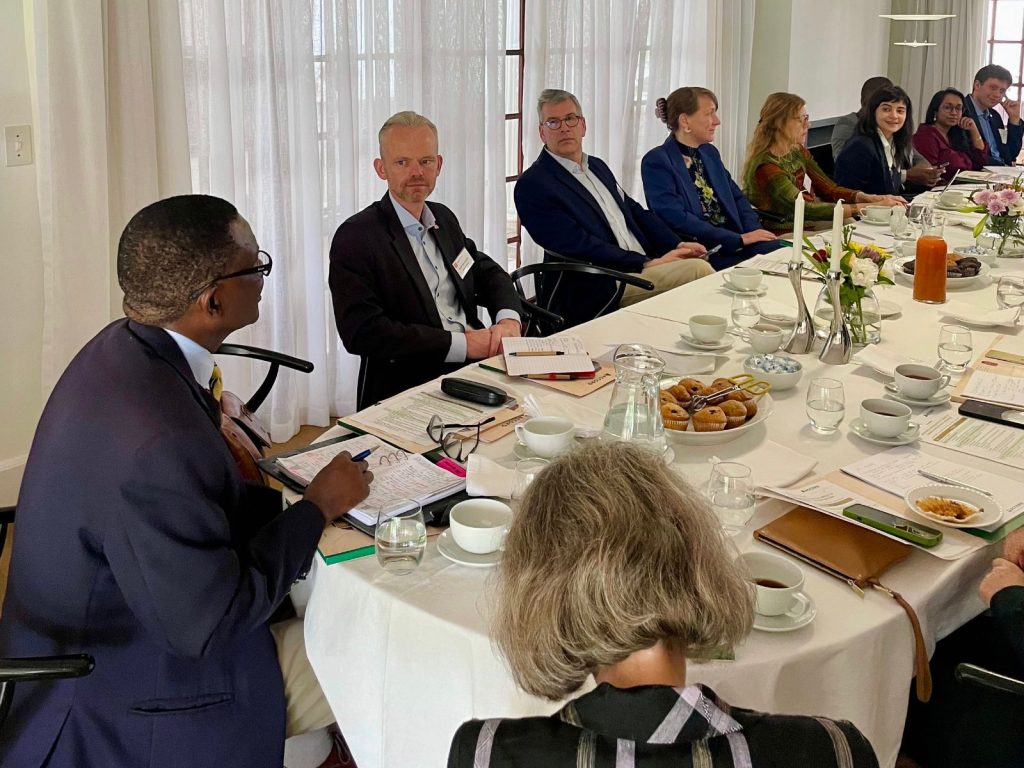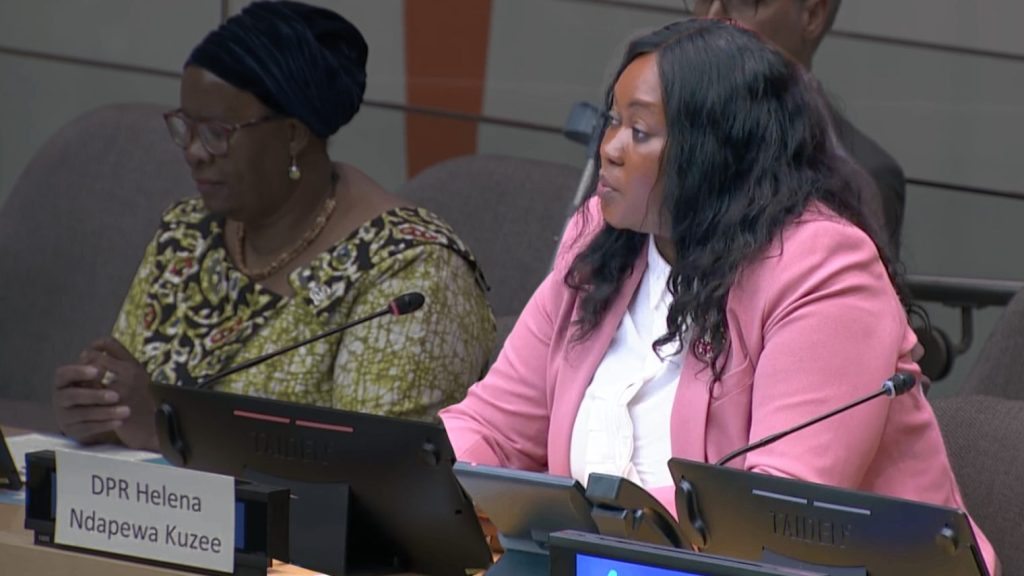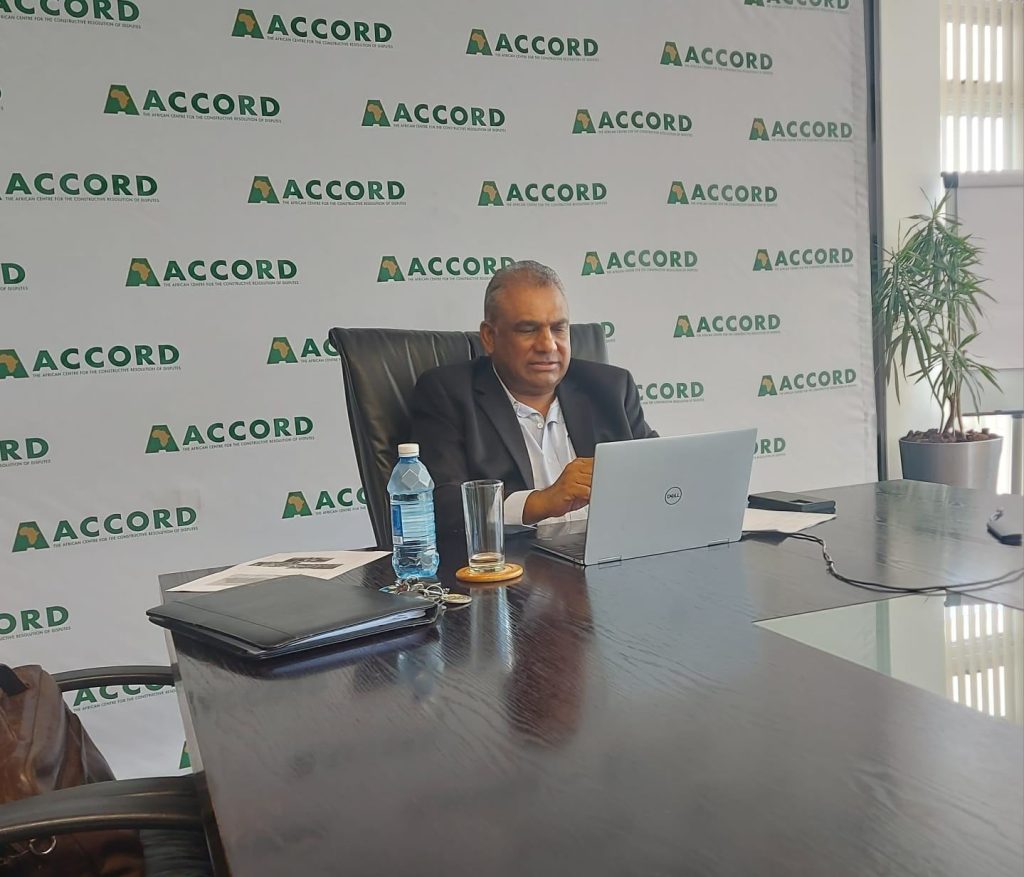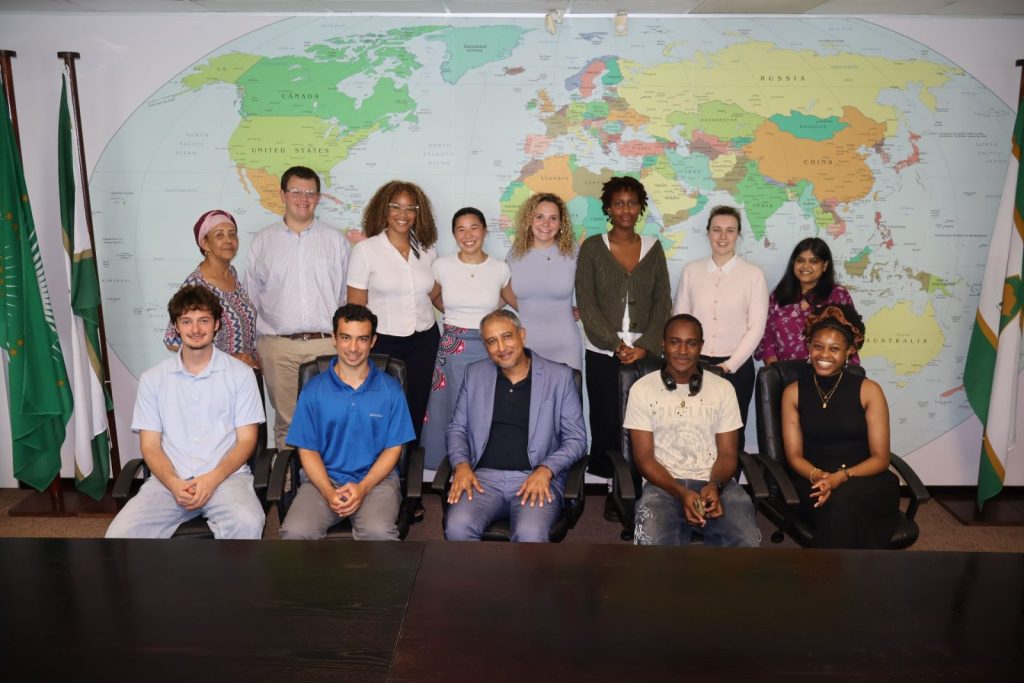In 2014 Madame Graca Machel accepted the Mahatma Gandhi Peace and Reconciliation Award on behalf of the African Centre for the Constructive Resolution of Disputes (ACCORD), in recognition of its 22 years of work in promoting peace and the constructive resolution of disputes globally. The 2015 recipient is Judge Navi Pillay, former United Nations High Commissioner for Human Rights from 2008 to 2014. ACCORD warmly congratulates Judge Pillay on her award.
During 2015, ACCORD has had the privilege of working closely with Judge Pillay in her role as Chair of the Special Reference Group on Migration and Community Integration in KwaZulu-Natal. ACCORD was appointed by the provincial government as the Secretariat to the Reference Group.
The Mahatma Gandhi Peace and Reconciliation Award, first launched in 2002, is awarded annually by the Gandhi Development Trust. The award recognises extraordinary individuals who dedicate their lives to the causes of peace and reconciliation both within South Africa and beyond. Recent recipients have included Dr Kenneth Kaunda in 2012, and Ms Brigalia Bam in 2013. Dr Kuanda was the first president of post-colonial Zambia and Ms Bam is the former Chairperson of South Africa’s Independent Electoral Commission.
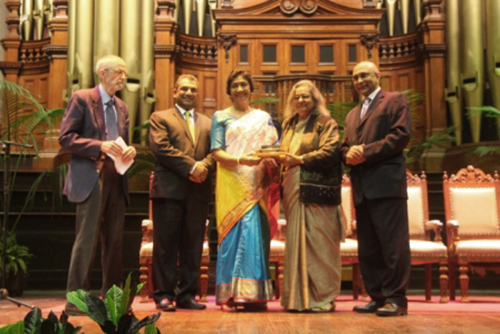
Previous recipients include former South African President Thabo Mbeki and former Botswana President Sir Ketumile Masire. The specific criteria for the award’s bestowal include outstanding dedication and commitment to the cause of justice, human rights and reconciliation; as well as a clear commitment to universal values; and a recipient that aligns with the Award’s themes for the specific year.
In her acceptance speech Judge Pillay noted that she had tried in her work to speak truth to power and be the voice of the voiceless. She stated that Gandhi’s example of personal sacrifice and dedication in the face of oppression was one of the many legacies to South Africa and to the world. He showed that it was necessary to brave imprisonment if truth and justice were to triumph over evil. The values of tolerance, mutual respect and unity for which he stood and acted had a profound influence on South Africa’s liberation movement and on her own thinking and could, she felt, inspire South Africans today in their efforts of reconciliation and nation building.
